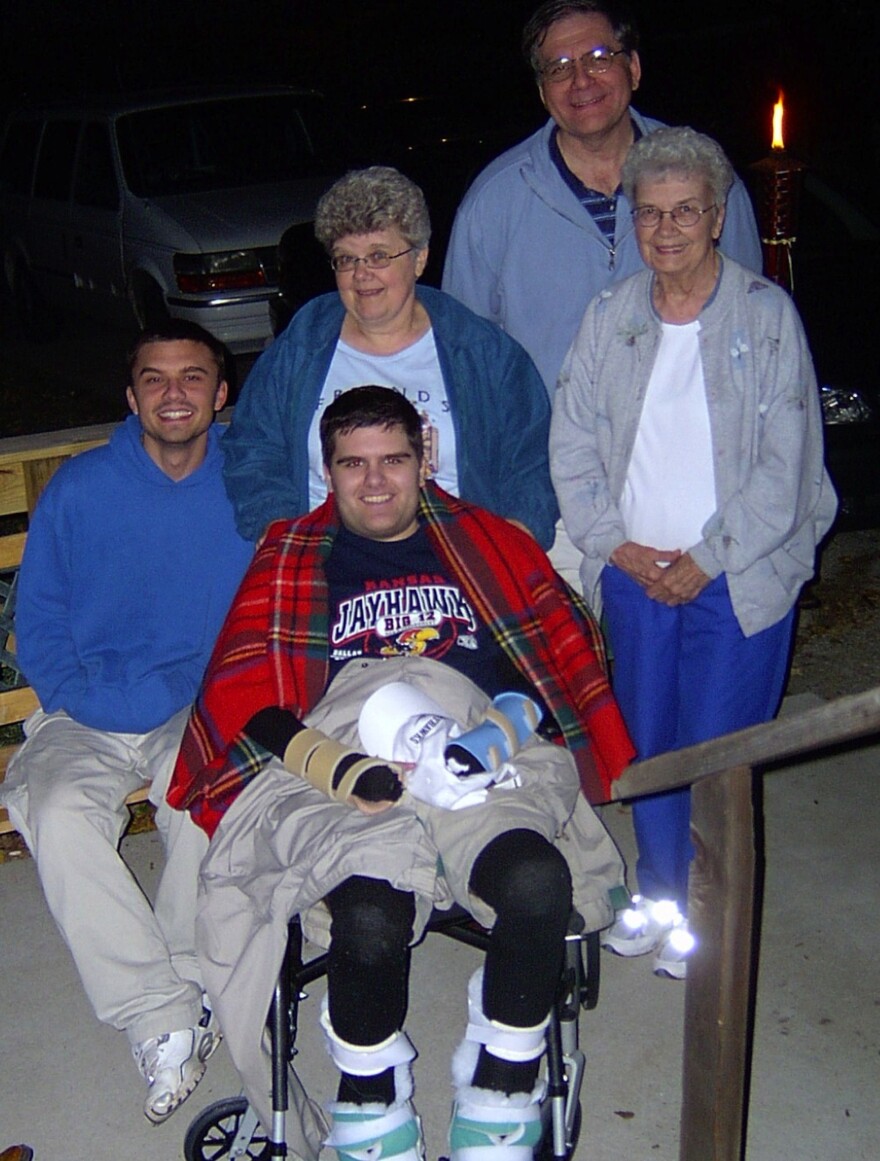Students at Princeton University and the University of California, Santa Barbara, are still on alert after outbreaks bacterial meningitis late in 2013.
This type of meningitis is known as serogroup B — a strain that's not guarded against in the vaccine that most college students take. These outbreaks were so serious that the Food and Drug Administration allowed the use of a vaccine that's not yet approved in the United States. The schools will start administering the second round of vaccines this month.
Eight students came down with the disease at Princeton, four at U.C. Santa Barbara. One of them, a freshman lacrosse player, had both feet amputated.
'Fighting For My Life'
Andy Marso contracted meningitis B in April 2004. He was just three weeks away from graduating from the University of Kansas.
"Overnight I went from healthy, 22-year-old college student, to intensive care, on a ventilator, lungs failing, fighting for my life," Marso tells NPR's Arun Rath.
After going to bed one night with flu-like symptoms, Marso woke up the next morning unable to walk, with a rash on his arms.
This form of meningitis causes blood poisoning. The bacteria was releasing toxins that burned holes in his blood vessels. The rash on his arms, was actually lots of little bruises. For three weeks after he came down with the disease, he was put into a medically induced coma to allow his body to heal.
This wasn't an outbreak: The University of Kansas went to great lengths to make sure anyone who had contact with Marso got preventative antibiotics.
"By the time I woke up three weeks later, my limbs were rotting while still attached to my body," he says.
He woke up to see his limbs covered in bandages.
"The doctors ... tried to prepare me," says Marso. "They told me, 'You have tissue damage equal to third-degree burns over 30 percent of your body.'
"But nothing that they tell you can prepare you for when they take those bandages off and you see your limbs have turned black ... and your fingers and toes are curling up and dying while still attached to you."
Writing Through Recovery
Marso underwent weeks of aggressive burn treatments that involved cutting through the dead skin until blood is drawn, "because at that point they know they've reached something that's still alive," Marso says.

In the end, he lost all of his toes and all of his fingers, except for his right thumb.
He taught himself to hold a pen and write again. To type, he uses his right thumb and the "nub" of his left thumb. "What I like to tell people is that my brain holds me back more than my hands at this point when I'm writing," says Marso, now a reporter with the Topeka Capital-Journal in Kansas.
"I had nightmares about it for months afterward, and really the nightmares ended when I started writing about it," he says.
Last year, Marso published a book about the ordeal, Worth the Pain: How Meningitis Nearly Killed Me — Then Changed My Life for the Better.
Marso says that, in a way, having this happen right before he graduated and entered the real world was good for him. "I had never been tested of challenged growing up — even throughout school," he says.
He says the experience gave him more empathy and made him a better journalist.
"I've already been laid off once and, you know, getting through that experience I think stemmed a lot from going through that process of rehab and learning to walk again," he says.
Marso says it also inspired good in the world around him.
"There was so much compassion that poured out towards me because I was going through this pain," Marso says. "So, if you look at it from the broader perspective — not from the self-centered, 'Why me?' perspective — then you get the sense that this really was worth the pain."
Copyright 2021 NPR. To see more, visit https://www.npr.org.



